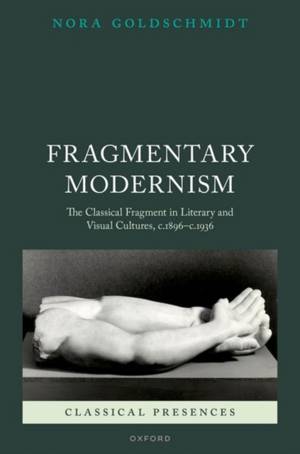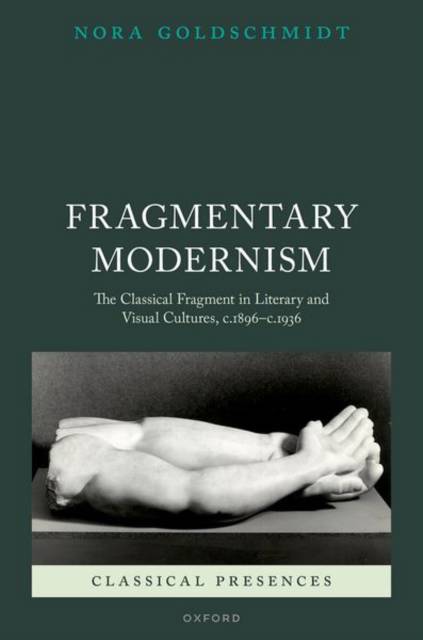
Bedankt voor het vertrouwen het afgelopen jaar! Om jou te bedanken bieden we GRATIS verzending (in België) aan op alles gedurende de hele maand januari.
- Afhalen na 1 uur in een winkel met voorraad
- Gratis thuislevering in België vanaf € 30
- Ruim aanbod met 7 miljoen producten
Bedankt voor het vertrouwen het afgelopen jaar! Om jou te bedanken bieden we GRATIS verzending (in België) aan op alles gedurende de hele maand januari.
- Afhalen na 1 uur in een winkel met voorraad
- Gratis thuislevering in België vanaf € 30
- Ruim aanbod met 7 miljoen producten
Zoeken
Fragmentary Modernism
The Classical Fragment in Literary and Visual Cultures, C.1896 - C.1936
Nora Goldschmidt
€ 169,45
+ 338 punten
Omschrijving
Fragmentary Modernism begins from a simple observation: what has been called the 'apotheosis of the fragment' in the art and writing of modernism emerged hand in hand with a series of paradigm-shifting developments in classical scholarship, which brought an unprecedented number of fragmentary texts and objects from classical antiquity to light in modernity. Focusing primarily on the writers who came to define the Anglophone modernist canon -- Ezra Pound, T.S. Eliot, Hilda Doolittle (H.D.), and Richard Aldington, and the artists like Jacob Epstein and Henri Gaudier-Brzeska with whom they were associated -- the book plots the multiple networks of interaction between modernist practices of the fragment and the disciplines of classical scholarship. Some of the most radical writers and artists of the period can be shown to have engaged intensively with the fragments of Greek and Roman antiquity and their mediations by classical scholars. But the direction of influence also worked the other way: the modernist aesthetic of gaps, absence, and fracture came to shape how classical scholars and museum curators themselves interpreted and presented the fragments of the past to audiences in the present. From papyrology to philology, from epigraphy to archaeology, the 'classical fragment', as we still often see it today, emerged as the joint cultural production of classical scholarship and the literary and visual cultures of modernism.
Specificaties
Betrokkenen
- Auteur(s):
- Uitgeverij:
Inhoud
- Aantal bladzijden:
- 240
- Taal:
- Engels
- Reeks:
Eigenschappen
- Productcode (EAN):
- 9780192863409
- Verschijningsdatum:
- 7/03/2024
- Uitvoering:
- Hardcover
- Formaat:
- Genaaid
- Afmetingen:
- 163 mm x 231 mm
- Gewicht:
- 566 g

Alleen bij Standaard Boekhandel
+ 338 punten op je klantenkaart van Standaard Boekhandel
Beoordelingen
We publiceren alleen reviews die voldoen aan de voorwaarden voor reviews. Bekijk onze voorwaarden voor reviews.









